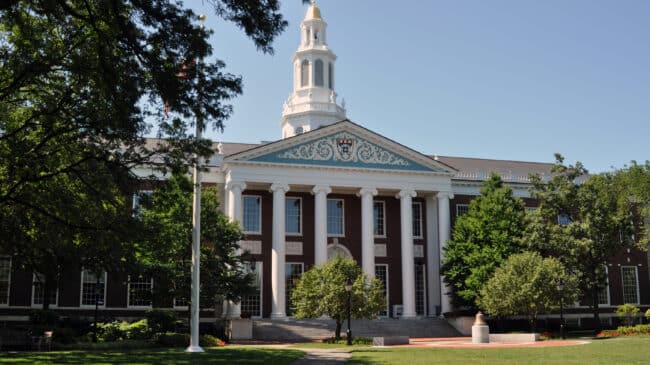No. 20-1199
In the Supreme Court of the United States
STUDENTS FOR FAIR ADMISSIONS, INC., Petitioner,
v.
PRESIDENT AND FELLOWS OF HARVARD COLLEGE, Respondent.
On Petition for Writ of Certiorari to the United States Court of Appeals for the First Circuit
Brief Amicus Curiae Of Pacific Legal Foundation, Reason Foundation, Center For Equal Opportunity, Individual Rights Foundation, Chinese American Citizens Alliance – Greater New York, Coalition For Tj, And Yi Fang Chen
In Support Of Petitioner
INTRODUCTION AND SUMMARY OF REASONS TO GRANT THE PETITION
“In the eyes of government, we are just one race here. It is American.” Adarand Constructors, Inc. v. Pena, 515 U.S. 200, 239 (1995) (Scalia, J., concurring). Both the Constitution and the Civil Rights Act of 1964 enshrines the important principle that we are equal under the law. The Equal Protection Clause prohibits the government from denying “any person . . . the equal protection of the laws.” U.S. Const. amend. XIV, cl. 1. Title VI extends that prohibition to private universities that receive federal financial assistance. See 42 U.S.C. § 2000d (“No person in the United States shall, on the ground of race . . . be subjected to discrimination under any program or activity receiving Federal financial assistance.”).
Harvard receives federal funds, Pet. App. 235, but it does not comply with the antidiscrimination mandate of Title VI. Harvard “intentionally provides tips in its admissions process based on students’ race,” id., and “its admissions officers may take an applicant’s race into account when making an admissions decision even when the applicant has not discussed their racial or ethnic identity in their application.” Id. at 236. Under a race-neutral admissions program, Asian Americans would make up 27 percent of Harvard’s incoming class. Id. at 69 n.29. But Harvard’s racial preferences push that number down to 24 percent. Id.
Title VI’s protections are coextensive with the Equal Protection Clause of the Fourteenth Amendment. Gratz v. Bollinger, 539 U.S. 244, 276 n.23 (2003). Neither the Constitution nor Title VI countenances racial preferences in admissions decisions. The First Circuit’s decision to the contrary rested upon an outlier in this Court’s equal protection jurisprudence: Grutter v. Bollinger, 539 U.S. 306 (2003). The First Circuit invoked Grutter repeatedly throughout its opinion, and concluded that “Harvard’s limited use of race in its admissions process in order to achieve diversity” was consistent with this Court’s precedents. Pet. App. 98.
Grutter should be overruled. From the day on which it was decided, Grutter has been “grievously wrong.” Ramos v. Louisiana, 140 S. Ct. 1390, 1414–15 (2020) (Kavanaugh, J., concurring in part). The Equal Protection Clause contains a categorical statement: no state “shall . . . deny to any person within its jurisdiction the equal protection of the laws.” U.S.
Const. amend. XIV, cl. 1. Yet the thrust of Grutter is that “not every decision influenced by race is equally objectionable.” 539 U.S. at 327. As a result, Grutter announced a compelling interest in furthering diversity in the limited context of higher education. See id. at 328–30.
This diversity rationale is unsound. It rests upon arbitrary racial classifications. The term “Hispanic,” for instance, does not describe a common background, designate a common language, or even describe gross physical appearance. See Peter Wood, Diversity: The Invention of a Concept 25 (2003). And “Asians” make up roughly 60 percent of the world’s population and encompass people of Chinese, Indian, Filipino, and many more backgrounds. David E. Bernstein, The Modern American Law of Race 9–10 (May 2020).2 Although state-sponsored treatment of individuals as members of arbitrary racial groups is reason enough to overrule Grutter, the decision’s practical effects provides added cause for pause. Grutter’s diversity rationale perpetuates harmful stereotypes against Asian applicants and exacerbates a long and sordid history of discrimination against Asians in the United States. Grutter is also unworkable. As the record in this case illustrates, universities have treated the decision as an unqualified endorsement of racial preferences. Such preferences not only deny students their right to equal justice before the law, but harm the very students they purportedly benefit. This Court should grant the petition, and overrule Grutter.
Full Amicus Brief: Students For Fair Admissions, Inc. v. President And Fellows Of Harvard College
